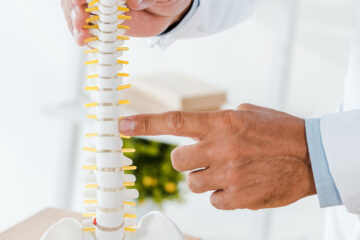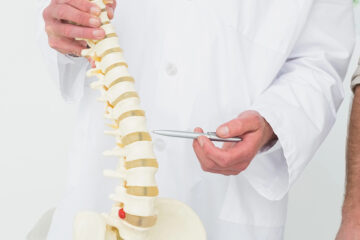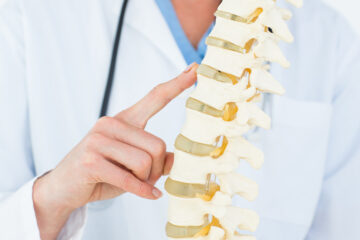How Do You Relieve Pain From Degenerative Disc Disease?


How Do You Relieve Pain From Degenerative Disc Disease?
Degenerative Disc Disease (DDD) is a common condition that arises from the natural wear and tear of the intervertebral discs, which act as cushions between the bones of the spine. As these discs deteriorate, they can lead to pain, stiffness, and reduced mobility. While DDD is a chronic condition, there are several strategies to relieve pain and improve quality of life. Here’s how you can manage and alleviate the discomfort associated with Degenerative Disc Disease.
Medications
Over-the-counter pain relievers, such as ibuprofen or acetaminophen, can help manage mild to moderate pain. These medications reduce inflammation and alleviate discomfort. For more severe pain, your doctor may prescribe stronger medications, including muscle relaxants or prescription-strength anti-inflammatory drugs. It’s important to use these medications as directed and consult with a healthcare professional if pain persists.
Physical Therapy
Physical therapy is a cornerstone of treatment for DDD. A physical therapist can create a customized exercise program designed to strengthen the muscles supporting the spine, improve flexibility, and enhance posture. Core-strengthening exercises, in particular, can help reduce the strain on the spinal discs. Physical therapy can also include modalities such as ultrasound, electrical stimulation, or manual therapy to reduce pain and inflammation.
Heat and Cold Therapy
Applying heat can relax tense muscles and improve blood flow to the affected area, while cold therapy can reduce inflammation and numb sharp pain. Alternating between heat and cold can be particularly effective. Use a heating pad or warm towel for heat therapy, and an ice pack wrapped in a cloth for cold therapy. Apply each for 15-20 minutes as needed.
Lifestyle Modifications
Maintaining a healthy weight is crucial in managing DDD, as excess weight can place additional strain on the spine. Engaging in regular low-impact exercise, such as walking, swimming, or cycling, can help keep the spine flexible and reduce pain. Additionally, adopting ergonomic practices in daily activities, such as using supportive chairs and avoiding prolonged sitting or standing, can help manage symptoms.
Alternative Therapies
Alternative therapies like chiropractic care, acupuncture, and massage therapy can provide relief for some individuals with DDD. Chiropractic adjustments may help realign the spine and reduce pressure on the discs, while acupuncture can relieve pain and promote healing through the stimulation of specific points on the body. Massage therapy can alleviate muscle tension and improve circulation, contributing to pain relief.
Epidural Steroid Injections
For persistent and severe pain, epidural steroid injections can provide significant relief. These injections deliver anti-inflammatory medication directly to the area around the affected disc, reducing inflammation and pain. The effects can last from several weeks to a few months, providing a window of relief during which other treatments can be more effective.
Surgical Options
When conservative treatments fail to provide sufficient relief, or if there is significant nerve compression leading to symptoms like numbness or weakness, surgical intervention may be necessary. Procedures such as discectomy, spinal fusion, or artificial disc replacement aim to remove the damaged disc material, stabilize the spine, and relieve pressure on the nerves.
Relieving pain from Degenerative Disc Disease involves a multifaceted approach tailored to the individual’s symptoms and lifestyle. From medications and physical therapy to lifestyle changes and alternative therapies, there are numerous ways to manage the pain and discomfort associated with DDD. For those with persistent or severe symptoms, medical interventions such as injections or surgery may be necessary. It’s important to work closely with a healthcare provider to develop a comprehensive treatment plan that addresses your specific needs and promotes long-term spinal health.



